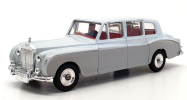A long time ago now in the early 2000s, I picked up a copy of the Journal Science. Published by the American Association for the Advancement of Science. In the paper that was published in the particular issue of the Journal, there was an interesting paper on the use of genetic algorithms to design electronic circuitry by using a Field Programmable Gate Array device.
The idea, was to have a genetic algorithm design a circuit that would do a job, already known. Not digital! Analog. Non discrete. No clock.
The thing was that certain gates were turned on, but had no connection to the circuit that was active.
They removed them by turning those gates off.
The circuit no longer worked.
The only thing that I can come up with, is that Analog circuits are prone to environmental effects. This means that temperature, humidity, static charge, and so on affect the operation of the Analog circuit. The presence of the gates turned on had an effect - in other words no direct connection. If the circuit requires a non direct electromagnetic object to run properly then something else unexpected is going on.
So, the whole total design of a Constitution class is the warp drive. Everything must have an affect. The crew, food supplies and so on. Minor adjustments like someone going from the farthest point to the lower stern of the engineering hull, can be allowed.









